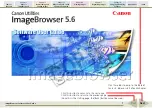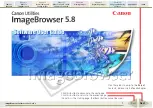
■
On SRX5600 devices, when the system is in an unstable state (for example SPU
reboot), NFS might generate
residual.nfs
files under the
/var/tmp
directory,
which can occupy the disk space for a very long time. As a workaround, run the
request sys storage cleanup
command to clean up when the system has low disk
space. [PR/420553]
■
On SRX650 devices, the kernel crashes when the link goes down during TFTP
installation of the
srxsme
image. [PR/425419]
■
On SRX650 devices, continuous messages are displayed from
syslogd
when ports
are in switching mode. [PR/426815]
■
On SRX240 devices, if a timeout occurs during the TFTP installation, booting the
existing kernel using the boot command might crash the kernel. As a workaround,
use the reboot command from the loader prompt. [PR/431955]
■
On SRX240 devices, when you configure the system log hostname as 1 or 2, the
device goes to the shell prompt. [PR/435570]
■
On SRX240 devices, the
Scheduler Oinker
messages are seen on the console at
various instances with various Mini-PIM combinations. These messages are seen
during bootup, restarting fwdd, restarting chassisd, and configuration commits.
[PR/437553]
■
On SRX5800 devices, rebooting is required for any NP bundle configuration
change to take effect. Currently there is no notification displayed after the bundle
configuration change to notify that a reboot is required for the change to take
effect. [PR/441546]
■
On SRX Series and J Series devices with
session-init
and
session-close
enabled,
you should not clear sessions manually when too many sessions are in status
"used". [PR/445730]
■
On SRX5600 and SRX5800 devices, data path debug trace messages are getting
dropped at above 1000 packets per second (pps). [PR/446098]
■
On J2350, J4350, and J6350 devices, extended Bit Error Rate Test (BERT) takes
an additional 3 hours to complete even though a BERT-period of 24 hours is set.
[PR/447636]
Network Address Translation (NAT)
■
On SRX240 High Memory devices, in a chassis cluster environment, the secondary
node can go to
DB>
mode when there are many policies configured and TCP,
UDP, and ICMP traffic matches the policies. [PR/493095]
■
On J4350 devices, when you place internal calls, interface-based persistent NAT
displays only one active hairpinning session instead of two, even after the call
is established. [PR/504932]
■
On SRX3400, SRX3600, SRX5600, and SRX5800 devices, NAT behavior in event
logs is incorrect for JUNOS Release 10.2. Because of a bug, the log output shows
both source and destination IP from the client/server instead of only the IP
address with NAT. The output incorrectly shows 4.0.0.0->5.0.0.1.
The correct output should be as follows:
■
For destination NAT, the IP address in the log should be 0.0.0.0->5.0.0.1.
Issues in JUNOS Release 10.1 for SRX Series Services Gateways and J Series Services Routers
■
153
Issues in JUNOS Release 10.1 for SRX Series Services Gateways and J Series Services Routers
















































